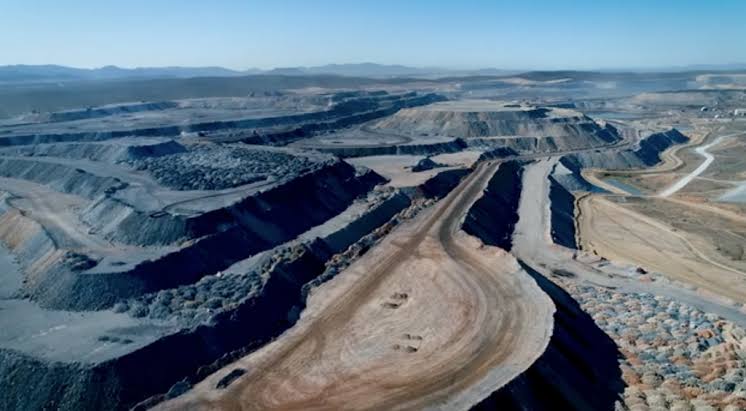From Dare Akogun, Egypt
The United Nations Environmental Programme, UNEP has announced a satellite based Methan detection system Methane Alert and Response System (MARS).
Speaking at the launch at the ongoing 27th United Nations Climate Change Conference COP 27 in Sharm El Sheikh Egypt, Executive Director of UNEP Inger Andersen said the system is a data-to-action platform set up as part of the UNEP International Methane Emissions Observatory (IMEO) strategy to get policy-relevant data into the right hands for emissions mitigation.
He says UNEP’s Emissions Gap Report showed before this climate summit, the world is far off track on efforts to limit global warming to 1.5°C.
According to him “Reducing methane emissions can make a big and rapid difference, as this gas leaves the atmosphere far quicker than carbon dioxide. The Methane Alert and Response System is a big step in helping governments and companies deliver on this important short-term climate goal,” he says.
Methane is a powerful greenhouse gas, contributing at least a quarter of today’s climate warming. According to the Intergovernmental Panel on Climate Change, we must cut methane emissions at least 30% by 2030 – the goal of the Global Methane Pledge – to keep the 1.5°C temperature limit within reach.
Developed in the framework of the Global Methane Pledge Energy Pathway – with initial funding from the European Commission, the US Government, Global Methane Hub, and the Bezos Earth Fund – MARS will allow UNEP to corroborate emissions reported by companies and characterize changes over time. MARS will be implemented with partners including the International Energy Agency, and the UNEP-hosted Climate and Clean Air Coalition.
In addition to supporting MARS, the Global Methane Hub and the Bezos Earth Fund are providing funding for other UNEP IMEO activities. These include baseline studies and initial work on agricultural methane emissions, where integrating multi-scale ground measurements with emerging satellite capacity is expected to provide improved quantification.
First public global system connecting methane detection to notification processes
MARS will be the first publicly available global system capable of transparently connecting methane detection to notification processes. It will use state-of-the-art satellite data to identify major emission events, notify relevant stakeholders, and support and track mitigation progress.
Beginning with very large point sources from the energy sector, MARS will integrate data from the rapidly expanding system of methane-detecting satellites to include lower-emitting area sources and more frequent detection. Data on coal, waste, livestock and rice will be added gradually to MARS to support Global Methane Pledge implementation.
“Cutting methane is the fastest opportunity to reduce warming and keep 1.5°C within reach, and this new alert and response system is going to be a critical tool for helping all of us deliver on the Global Methane Pledge,” said John Kerry, U.S. Special Presidential Envoy for Climate.
Components of the Methane Alert and Response System
MARS will use data from global mapping satellites to identify very large methane plumes and methane hot spots and attribute the emissions to a specific source. UNEP will then notify governments and companies about the emissions, either directly or through partners, so that the responsible entity can take appropriate action.
If requested, MARS partners will provide technical or advisory services such as help in assessing mitigation opportunities. UNEP will continue to monitor the event location and make the data and analysis available to the public between 45 and 75 days after detection.
The Chief of Science, Data and Systems Change at the Bezos Earth Fund Dr. Kelly Levin, said the world is seeing methane emissions increase at an accelerated rate.
“With this initiative, armed with greater data and transparency, companies and governments can make greater strides to reduce methane emissions and civil society can keep them accountable to their promises,” said
For the CEO Global Methane Hub Marcelo Mena, said the science is clear as there is need to reduce global methane emissions by at least 30 per cent by 2030, to keep 1.5°C alive.
“Fortunately, action on methane emissions is one of the most cost effective and impactful action a country can take.
“Therefore, Global Methane Hub is pleased to partner with UNEP and the Bezos Earth Fund, on providing critical resources – to the MARS initiative – that can enable the identification and rapid response to major methane emissions from the energy sector, as well as take the first steps in enabling satellite observations to address methane emissions from the agricultural sector”, he said.

